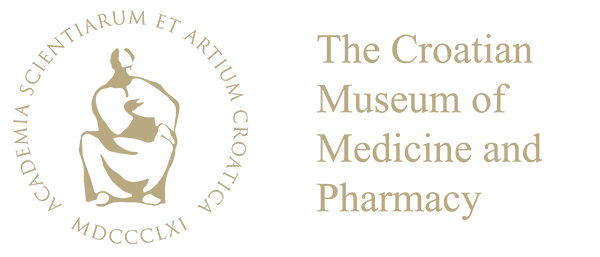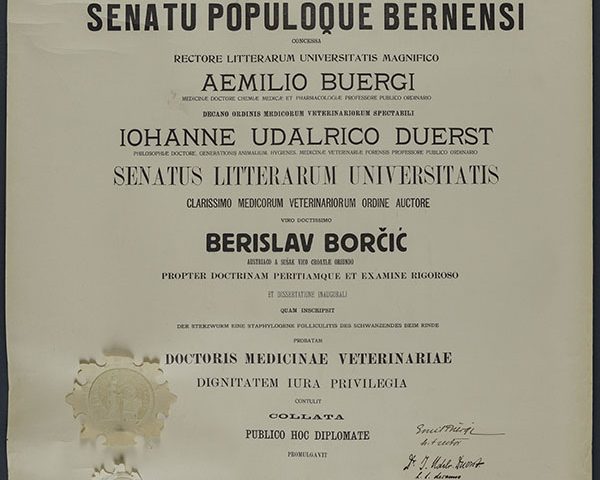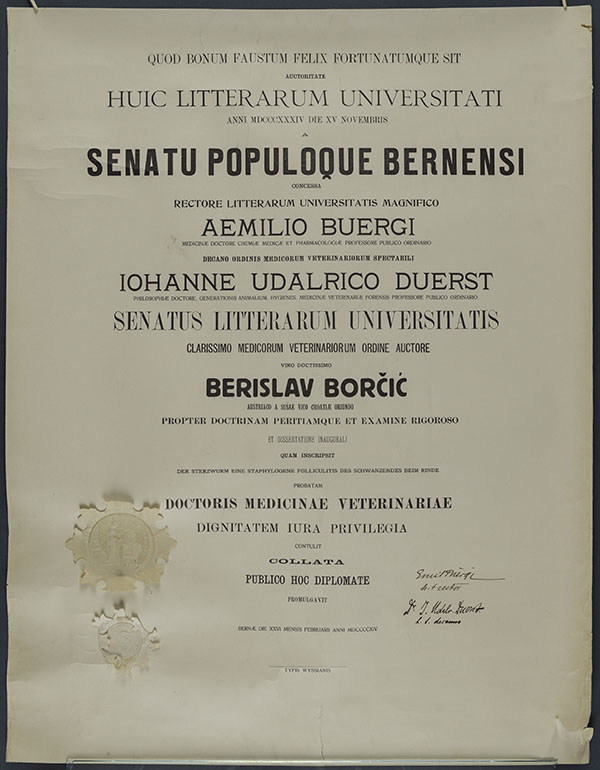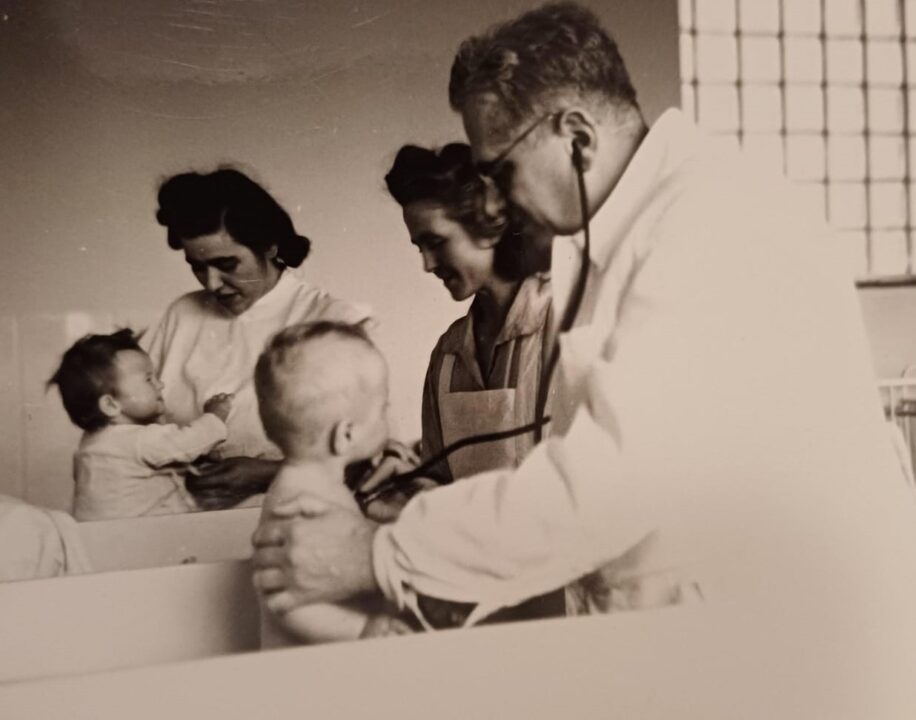Berislav Borčić
Berislav Borčić, hygienist and specialist of social medicine (Draga Gornja near Sušak, 10th April 1891 – Zagreb, 3rd September 1977). He attended secondary school in Sušak, where he participated in the work of the organization of the Croatian advanced youth and participated in its first congress in 1909 in Trsat. He studied veterinary medicine in Vienna and Bern, where he was promoted in 1914. On the eve of World War I as a military fugitive he fled to Serbia and since 1914 he has been working in Niš as an outside assistant of the Pasteur institute. In 1915, he withdrew with the Serbian army across Albania to Italy. Returning to Bern again, he completed his studies of human medicine in 1919 with his dissertation Ein Beitrag zur Frage der antigenen Wirkung der Bakterienfette. In 1919 he organized the Serovaccinal Institute in Belgrade and was a temporary administrator of the Pasteur institute. Specializing hygiene and social medicine in Bern, in 1921 he came in Zagreb and became the head of the National Bacteriological Institute (from 1923 called Epidemiological Institute), and in 1926-40. director of the Hygienic Institute with the School of Public Health in Zagreb. At that time, as an expert of the Hygienic section of the League of Nations he visited Greece, and then between 1930 and 1938, three times China as the chief advisor for the Chinese Ministry of Public Health. In Nanking, then a capital city, he organized the Central Hygiene Institute with the School of Public Health, modeled on the one in Zagreb, the School for midwives and assistants and the Central State Hospital.
Together with A. Štampar, who joined him later, he organized health care in the provinces, districts and cities of China, where provincial institutes for the protection of the public health and district homes of public health were founded, and promoted health and economic enlightenment. From 1940 to 1941, he was the director of the newly founded Banovina Institute for production of medicaments in Zagreb (PLIBAH).
After the arrival of the occupiers he was suspended, but after a few weeks he was made the director of the House of Public Health in Osijek for the lack of staff. In Osijek he establishes the Home for Mothers and Infants and stops malaria, which then caught a part of Slavonia. At the beginning of 1943 he was transferred to the General Directorate for Health in Zagreb and returned to the post of Head of Hygiene Institute (then Health Care Institute). He is an active participant in NOP; as the president of illegal NOO in Zagreb from 1943 to 1945 he organized the sending of medical staff and drugs to the liberated territory. After the liberation, he became the president of the People’s Front, then Vice-President of the City’s People’s Committee of Zagreb and is working intensively on the revival of the Hygienic Institute (which he runs until 1946) and works as an advisor at the Ministry of Public Health.
In 1946, at the invitation of the UN Relief and Rehabilitation Administration (UNRRA), he directed the mission of health promotion and organisation of medical care in China, and in 1947 he founded and led the World Health Organization (WHO) mission in China. He was the WHO’s chief health consultant at the International Children’s Fund UN (UNICEF) in Paris (1948-50) and New York (1950-55), and in 1955-57. he is a deputy general director of UNICEF in New York. In 1957 he returned to Zagreb, where he works as a Senior Counselor at the Hygienic Institute until his retirement in 1959 when he returned to his native Sušak.



